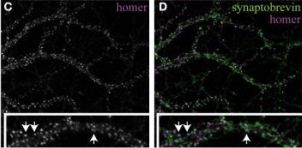
1 The author wishes to thank two anonymous reviewers for their helpful comments, and the editors of t (.)ġ Adjectives are known to have two primary syntactic functions: adnominal (commonly referred to as ‘attributive’ in English) and predicative, a syntactic property which can even be seen as a defining characteristic of the category across languages (cf.L’examen de ces critères syntaxiques fait aussi ressortir quelques différences entre des quasi-synonymes tels que glad/ happy. Au sein de chaque famille d’adjectifs, l’on retrouve un profil syntaxique distinctif commun quant à leur prédisposition à la fonction adnominale ou prédicative et leurs affinités avec certains déterminants ou marques d’intensification. À des fins de comparaison, des données de référence ont été récoltées pour la catégorie dans son ensemble à partir des étiquettes grammaticales, ce qui a permis d’observer que quatre déterminants principaux et six verbes copules sont impliqués dans 80-90% des occurrences. Des formules de recherche par expressions régulières (regex) ont été conçues pour viser certains paramètres contextuels, notamment la fonction syntaxique (adominale ou prédicative), le déterminant, le sujet grammatical et les marques d’intensification, tandis que, par ailleurs, des estimations manuelles ont été obtenues à partir d’échantillons aléatoires de 500 occurrences pour chaque adjectif. Vingt adjectifs appartenant, d’un point de vue sémantique et intuitif, à cinq familles, à savoir ceux qui décrivent l’âge ( old, young), la taille ( large, small, big), la couleur ( black, white, red, yellow, blue), la modalité ( possible, impossible, necessary, likely, sure) et les émotions ( happy, sad, glad, sorry), ont été inventoriés dans un corpus de 5 millions de mots étiquetés par catégorie grammaticale et lemme. Differences were observed as well between certain quasi-synonyms such as glad / happy with respect to one or more of these criteria. Adjective families were found to share common, distinctive syntactic profiles, with similar predispositions to adnominal or predicative function and similar affinities with specific determiners or intensifiers. Benchmark data, for purposes of comparison, were first collected for the category as a whole using POS tags, from which it was observed that four major determiners and six copula verbs were present in 80-90% of all occurrences.
#AFFINITY SYNONYM MANUAL#
Regular expressions were used to target specific contextual parameters including syntactic function (adnominal or predicative), determiners, grammatical subject and intensifiers, while manual estimates were obtained from random samples of 500 occurrences per adjective. If you find any bugs in this program please report me at You need to enable JavaScript to run this Website.Twenty adjectives belonging to five intuitively recognizable semantic families, age ( old, young ), size ( large, small, big ), color ( black, white, red, yellow, blue ), modality ( possible, impossible, necessary, likely, sure ) and emotion ( happy, sad, glad, sorry ) were inventoried in a 5-million word corpus tagged for part of speech (POS) and lemma.


#AFFINITY SYNONYM FREE#
Please support this free service by just sharing with your friends.

Select the language from the dropdown given below & click on the button (Or Enter) to get the Meaning in your language. These languages include Hebrew, Azerbaijani, Esperanto, Slovak, Serbian, Korean, Telugu, Swahili, Slovenian, Georgian, Polish, Filipino, Malayalam, Urdu, Norwegian, Macedonian, Vietnamese, Bulgarian, Haitian Creole, Arabic, Irish, Afrikaans, Tamil, Maltese, French, Latin, Japanese, Portuguese, Estonian, Dutch, German, Hungarian, Romanian, Hindi, Gujarati, Turkish, Yiddish, Croatian, Lithuanian, Albanian, Chinese Traditional, Chinese Simplified, Italian, Russian, Persian, Galician, Ukrainian, Welsh, Indonesian, Catalan, Icelandic, Spanish, Danish, Finnish, Belarusian, Greek, Kannada, Swedish, Latvian, Malay, Bengali, Thai, Czech, Basque etc. It's a free Multilanguage dictionary with many languages around the World.


 0 kommentar(er)
0 kommentar(er)
